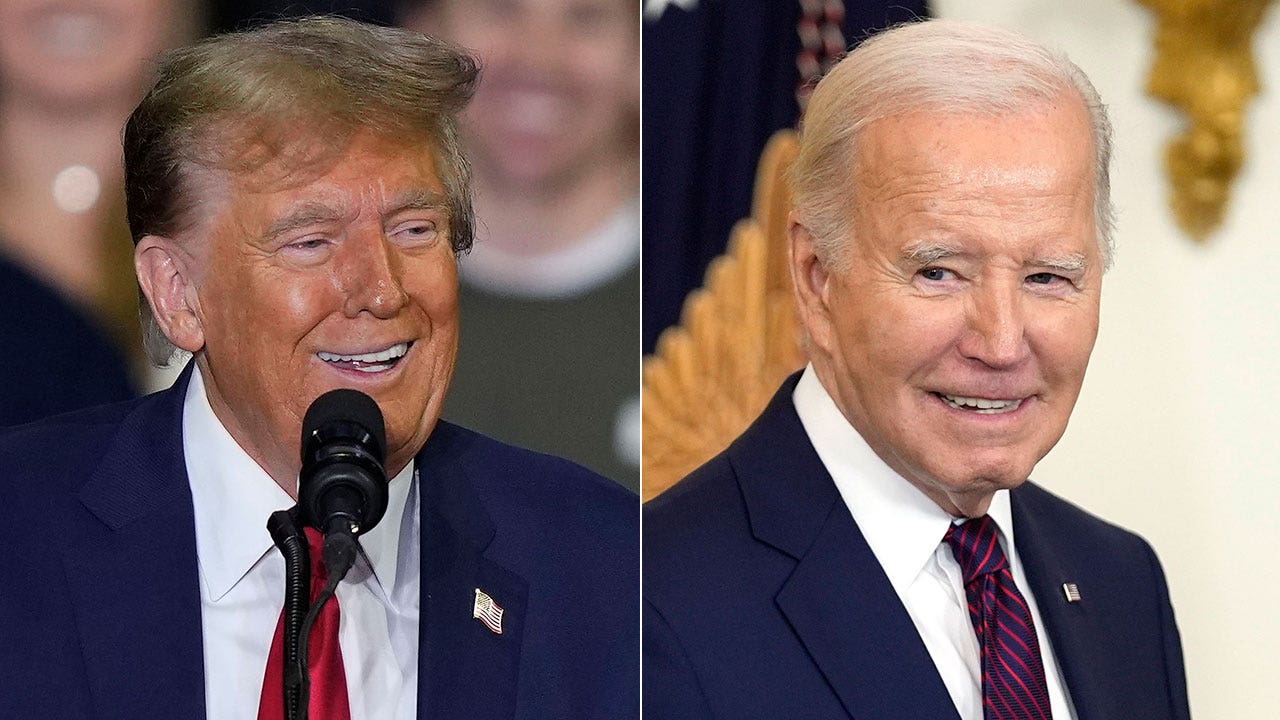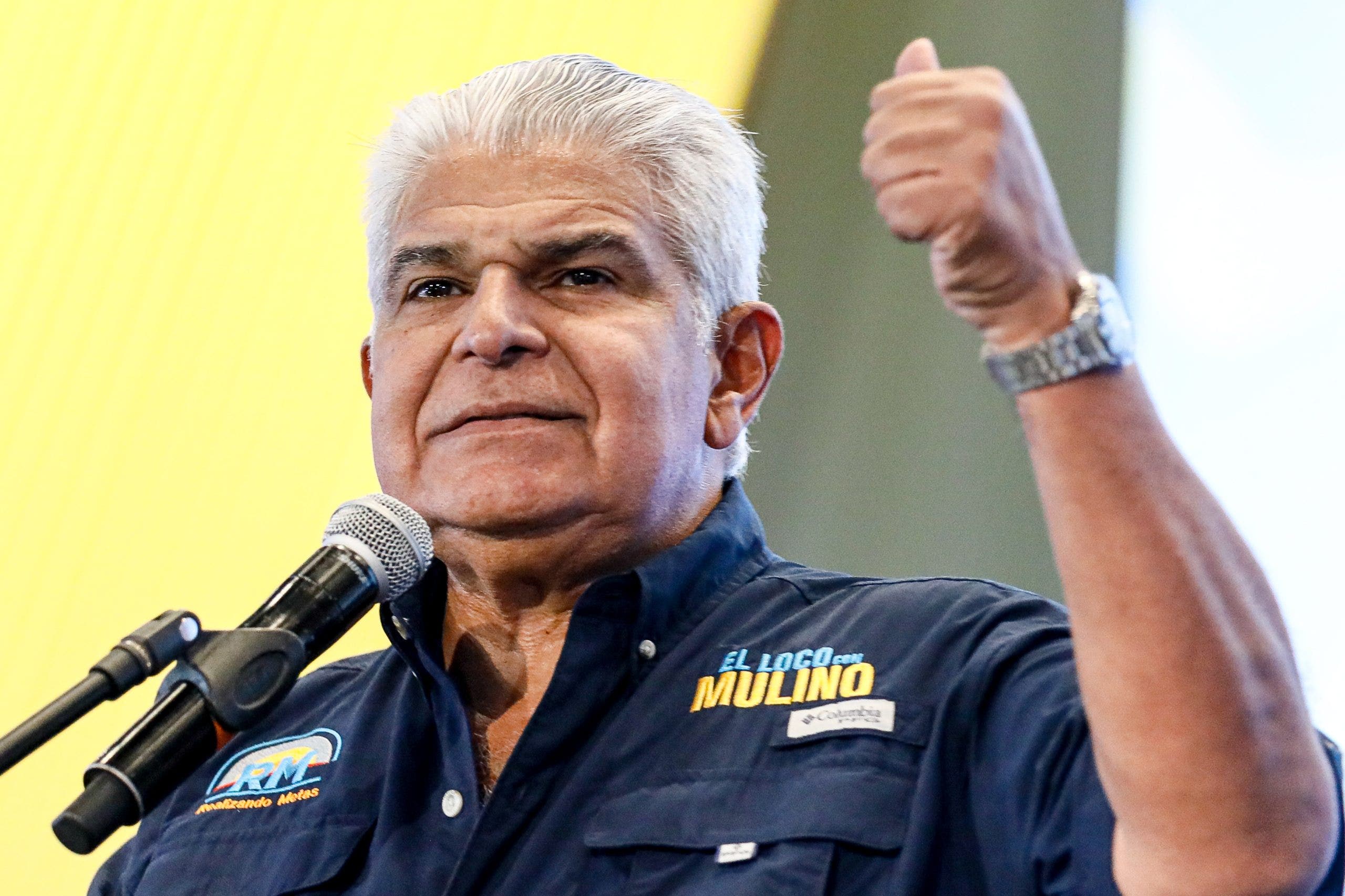- Bongo’s family have ruled for 56 years
- Street celebrations erupt in Gabon’s capital
- France, with troops in Gabon, condemns coup
- Army generals plan meeting to choose leader
World
Gabon officers declare military coup, President Ali Bongo detained
/cloudfront-us-east-2.images.arcpublishing.com/reuters/75IMY5VOBVO3VMMPU2CG7SY44Y.jpg)
LIBREVILLE, Aug 30 (Reuters) – Military officers in oil-producing Gabon said they had seized power on Wednesday and had put President Ali Bongo under house arrest, stepping in minutes after the Central African state’s election body announced he had won a third term.
The officers who said they represented the armed forces declared on television that the election results were cancelled, borders were closed and state institutions were dissolved, after a tense vote that was set to extend the Bongo family’s more than half century in power.
One of the officers, Brice Oligui Nguema, who in a video appeared to be hailed as their leader, told French newspaper Le Monde that he and other generals would meet on Wednesday to select someone to head the transitional government.
Hundreds of people on the streets of the Gabonese capital celebrated the military’s intervention, while France, Gabon’s former colonial ruler which has troops stationed in the African nation, condemned the coup.
If successful, the Gabon coup would be the eighth in West and Central Africa since 2020. The latest one, in Niger, was in July. Military officers have also seized power in Mali, Guinea, Burkina Faso and Chad, erasing democratic gains since the 1990s.
“I am marching today because I am joyful. After almost 60 years, the Bongos are out of power,” said Jules Lebigui, a jobless 27-year-old who joined crowds in Libreville.
The officers said they had detained Bongo, who took over in 2009 from his father Omar, who had ruled since 1967. They also said they had arrested the president’s son, Noureddin Bongo Valentin, and others for corruption and treason.
Opponents say the family has done little to share the state’s oil and mining wealth with its 2.3 million people. Violent unrest had broken out after Bongo’s disputed 2016 election win and there was a foiled coup attempt in 2019.
The Gabon officers, calling themselves The Committee of Transition and the Restoration of Institutions, said the country faced “a severe institutional, political, economic, and social crisis”. They said the Aug. 26 vote was not credible.
Republican Guard chief Nguema told Le Monde a leader had not been chosen but a meeting would be held on Wednesday to decide.
“Everyone will put forward ideas and the best ones will be chosen, as well as the name of the person who will lead the transition,” he said.
Television images showed a man who appeared to be Nguema held aloft by soldiers shouting “Oligui president”, using one of his names.
There was no immediate comment from Gabon’s government.
Gabonese military appear on television as they announce that they have seized power following President Ali Bongo Ondimba’s re-election. Gabon 1ere/via REUTERS Acquire Licensing Rights
FRENCH CONDEMNATION
Bongo, 64, was last seen in public casting his vote on Saturday. Before the vote, he had been seen looking healthier than his more frail television appearances after his 2018 stroke.
“We condemn the military coup and recall our commitment to free and transparent elections,” French government spokesman Olivier Veran said.
The coup creates more uncertainty for France’s presence in the region. France has about 350 troops in Gabon. Its forces have been kicked out of Mali and Burkina Faso after coups there in the last two years.
Unlike Niger and other Sahel countries, Gabon, which lies further south on the Atlantic coast, has not had to battle destabilising Islamist insurgencies. But the coup is a further sign of democratic backsliding in the volatile region.
The African Union’s Peace and Security Council chair called for a meeting on situation with Burundi, Senegal and Cameroon,
China called for a peaceful resolution and Russia said it hoped for a swift return to stability.
“With the coup leaders claiming to represent all factions of Gabon’s security apparatus, Mr Bongo is not expected to be able to suppress the uprising,” wrote Rukmini Sanyal, an analyst at Economist Intelligence Unit, citing “widespread public discontent” against Bongo, his family and his ruling party.
Gabon produces about 200,000 barrels of oil a day, mainly from depleting fields. International companies include France’s TotalEnergies (TTEF.PA) and Anglo-French producer Perenco.
French miner Eramet (ERMT.PA), which has large manganese operations in Gabon, said it had halted operations.
A lack of international observers, the suspension of some foreign broadcasts and a decision to cut internet service and impose a night-time curfew after Saturday’s election had raised concerns about the vote’s transparency. Bongo’s team rejected allegations of fraud.
On Wednesday, internet access appeared to be restored for the first time since the vote.
Shortly before the coup announcement, the election authority had declared Bongo the election winner with 64.27% of the vote and said his main challenger, Albert Ondo Ossa, had secured 30.77%.
Gabon’s dollar-denominated bonds fell as much as 14 cents on Wednesday before recovering around 2 cents of the losses.
Additional reporting by Alessandra Prentice, Elizabeth Pineau, Sofia Christensen, Sudip Kar-Gupta and Liz Lee; Writing by Nellie Peyton and Sofia Christensen; Editing by Simon Cameron-Moore and Edmund Blair
Our Standards: The Thomson Reuters Trust Principles.

Continue Reading
World
Iranian lawmaker declares Tehran obtained nuclear bombs
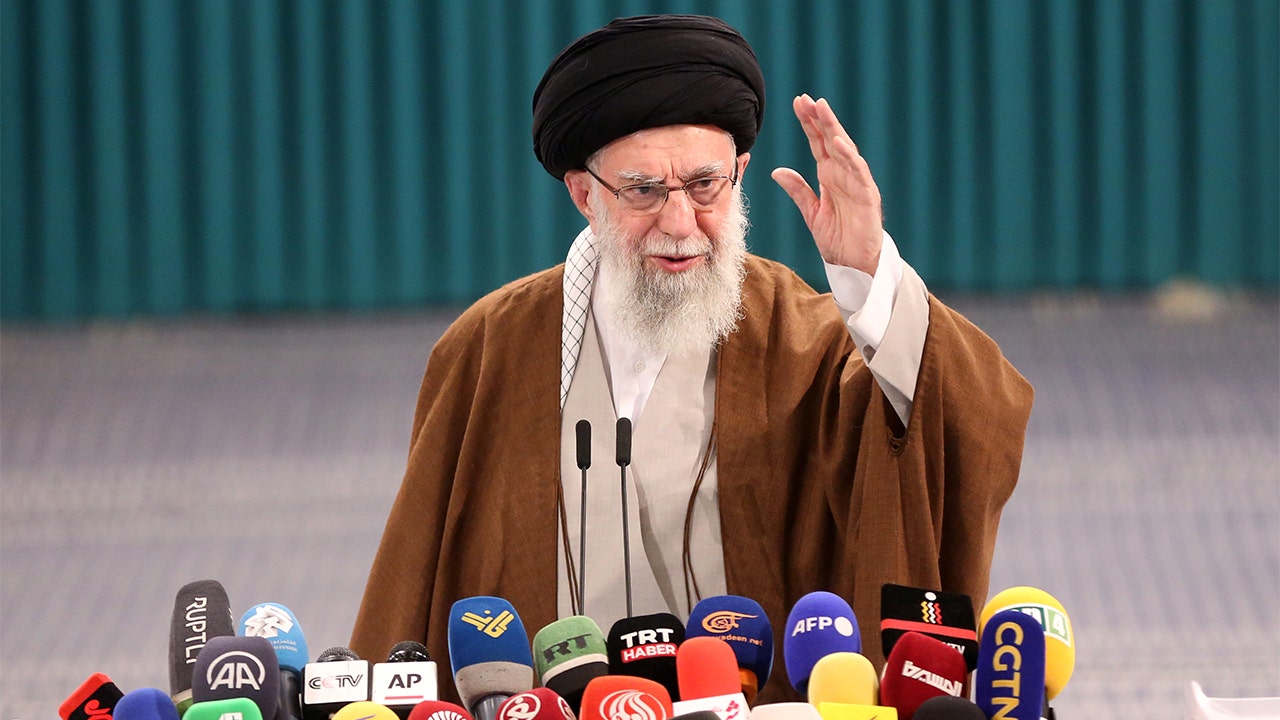
JERUSALEM – After the head of the United Nation’s atomic watchdog agency warned that Iran has enough uranium to produce “several” nuclear bombs, a firebrand Iranian lawmaker declared on Friday that the Islamic Republic of Iran possesses atomic weapons.
“In my opinion, we have achieved nuclear weapons, but we do not announce it. It means our policy is to possess nuclear bombs, but our declared policy is currently within the framework of the JCPOA,” Ahmad Bakhshayesh Ardestani told the Iran-based outlet Rouydad 24 on Friday, according to an article published by the independent news organization Iran International in London.
The JCPOA is an abbreviation for the Joint Comprehensive Plan of Action, the formal name for the Iran nuclear deal. President Trump withdrew the U.S. from the JCPOA in 2018 because, his administration argued, the accord did not stop Iran’s drive to build atomic weapons.
The JCPOA provides massive economic sanctions relief to Iran in exchange for assurances it will not, within a limited time period, build a nuclear weapon.
SEVERAL COUNTRIES COME TO ISRAEL’S AID TO STOP IRAN BARRAGE
Iran’s Supreme Leader Ali Khamenei addresses the media during parliamentary elections in Tehran on May 10, 2024. (Fatemeh Bahrami/Anadolu via Getty Images)
Ardestani, who was re-elected to Iran’s quasi-parliament in March, added, “The reason is that when countries want to confront others, their capabilities must be compatible, and Iran’s compatibility with America and Israel means that Iran must have nuclear weapons,”
The Iranian parliament member noted, “In a climate where Russia has attacked Ukraine and Israel has attacked Gaza, and Iran is a staunch supporter of the Resistance Front, it is natural for the containment system to require that Iran possess nuclear bombs. However, whether Iran declares it is another matter.” Fox News Digital sent press queries to Iran’s Foreign Ministry in Tehran and its U.N. mission in New York.
Experts on Iran’s illegal nuclear weapons program warned about the seemingly speculative comments made by Ardestani. Jason Brodsky, the policy director of the U.S.-based United Against a Nuclear Iran, told Fox News Digital that “Ardestani is only a member of parliament, and he’s not in the inner core of the regime’s nuclear decision-making circle, so while his comments are interesting, I think they have to be weighed properly given his access and standing.”
Just two days before Ardestani’s announcement, the president of the Iranian Strategic Council on Foreign Relations, Kamal Kharrazi, told Al-Jazeera Network Qatar, “I announced two years ago, in an interview with Al-Jazeera TV, that Iran had the absorptive capacity and the capability to produce a nuclear bomb. Iran still has that capability, but we have not made the decision to produce a nuclear bomb. However, if the Iranian interests are threatened in this manner, we may change this doctrine. The military officials in Iran have announced that if our nuclear facilities would be attacked, we may change our military doctrine, with regard to the nuclear facilities.” The U.S.-based Middle East Media Institute (MEMRI) translated and published Kharrazi’s May 8 interview.
WORLD LEADERS COLLECTIVELY CONDEMN IRAN’S ‘RECKLESS’ ATTACK AGAINST ISRAEL: ‘WE SUPPORT ISRAEL’
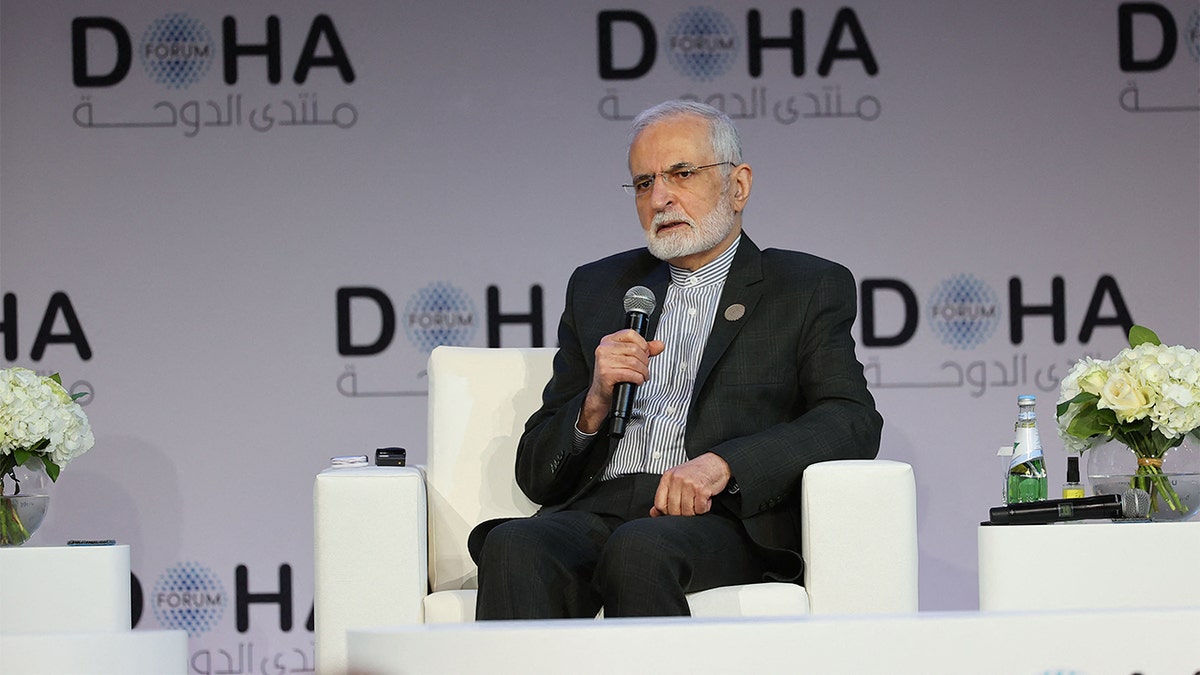
Kamal Kharrazi speaks at a panel on March 27, 2022. (Karim Jaafar/AFP via Getty Images)
Brodsky said, “Kharrazi’s comments are part of an increasingly loud chorus of threats from Iranian officials that they will change Iran’s nuclear doctrine if Israel attacks them. The current advanced state of Iran’s nuclear program provides it with the luxury to make these threats as it hopes to deter Western policymakers from launching pressure campaigns on Tehran.”
Critics of the Biden administration’s Iran policy argue the White House strategy of de-escalation and containment targeting Iran’s atomic program has backfired. Iran’s regime – the world’s worst state-sponsor of international terrorism – is moving at an astonishingly fast pace to secure an operational nuclear weapon.
Nuclear security alarm bells are ringing over Iran’s illicit atomic program in Europe. Fox News Digital obtained the April intelligence agency report for Germany’s most populous state, Nordrhein-Westfalen.
The German intelligence report notes, “The Islamic Republic’s continued intensive procurement efforts by Iran in Germany continues” for its “nuclear and missile program.” The German experts added “proliferation-relevant activities by Iran to circumvent existing sanctions in favor of Iran’s nuclear and missile programs can still be assumed.” A State Department spokesperson previously told Fox News Digital, “As the president and the secretary have made clear, the United States will ensure one way or another that Iran will never obtain a nuclear weapon. We continue to use a variety of tools in pursuit of that goal, and all options remain on the table.”
David Wurmser, a former senior adviser for nonproliferation and Middle East strategy for former Vice President Dick Cheney, told Fox News Digital, “The distance from where Iran is purported to be to an actual deliverable device is still a ways away, provided the information that we have in our operating from is correct. And that is quite a proviso. We know that North Koreans have been interacting with the Iranians, and we know relations with North Korea go back many, many years.”
The communist state of North Korea previously aided Syria in building its illicit nuclear reactor. Israel’s air force knocked out the reactor in 2007.
IRAN’S ‘NUCLEAR ENERGY MOUNTAIN’ IS ‘FULLY SAFE’ AFTER ISRAELI STRIKE: STATE MEDIA

David Wurmser, former senior adviser for nonproliferation and Middle East strategy for former Vice President Dick Cheney, in Washington D.C. (David Howells/Corbis via Getty Images)
Wurmser warned, “As since intelligence is generally incomplete and is inherently seeking to discover that which is given to being opaque with much hidden, we have to assume surprises. I realize in the Iraq war we imagined there was more there than there actually was – and there was more than what is popularly understood – but Iraq is actually a very rare circumstance. The Pakistani, the Russian, the Chinese, the Indian, and even the South African programs all were ahead of what we had expected when they were exposed. For that matter, that was the case with Libya as well.”
The non-proliferation expert noted, “So, on balance, I doubt Iran has a nuclear weapon yet, but I also doubt that the program is in a stable state, even a stable state regarding weaponization. I think Iran is pushing ahead and has every intention to go all the way. So time on this may still be there, but it is short and running out fast. And of course, the consequences of an Iranian bomb are catastrophic for the region, for Israel’s survival, and for the status of American power in the globe.”
The recent saber-rattling over Iran’s nuclear weapons program from regime officials and lawmakers coincides with International Atomic Energy Agency chief Rafael Grossi’s May 8 statement that his organization was working “very hard with [Iran] to prevent [nuclear weaponization] from happening.”
The Washington D.C.-based Institute for the Study of War wrote this suggests “that Iran has already obtained or is close to obtaining the ability to procure nuclear weapons.” The U.S. State Department did not immediately respond to a Fox News Digital press query.
World
EU's divided right wing can disrupt if it finds greater unity: experts
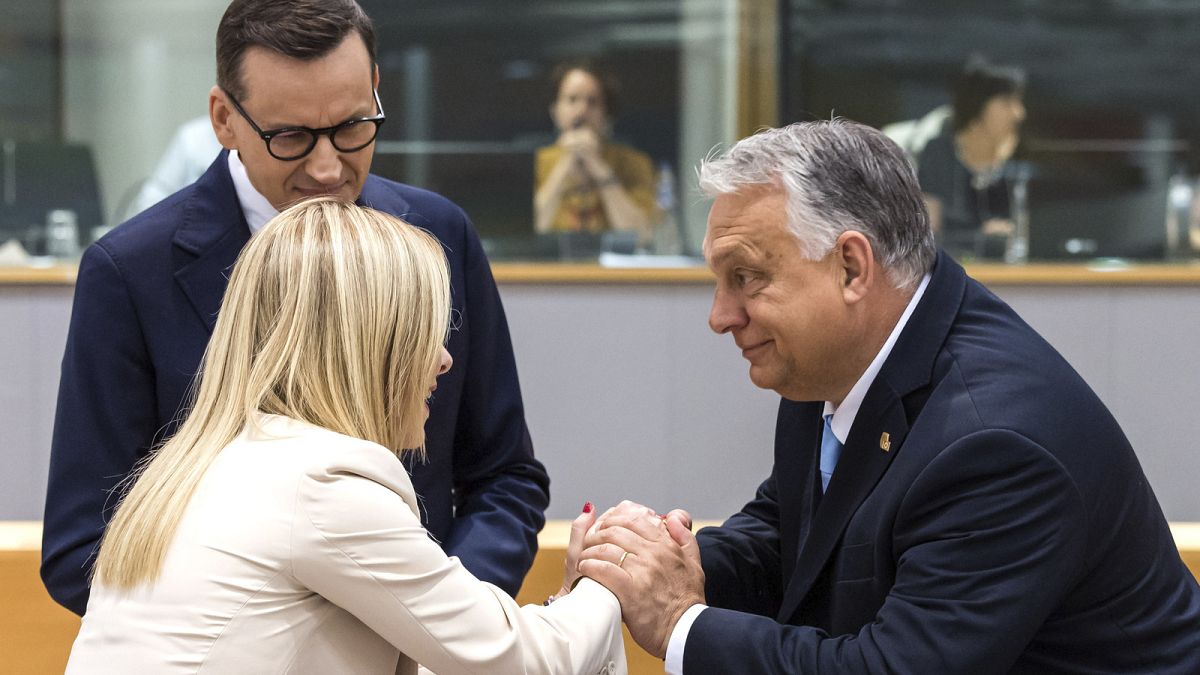
They’re set to make historic gains in June’s European elections, but Europe’s rising right wing parties need to find unity if they are to wield greater influence on the EU stage, experts tell Euronews.
Across the bloc, hard-right parties are roping in voters with promises to slash migration figures, slam the brakes on climate action and strip back EU powers – all in defence of so-called “national sovereignty.”
The right-wing surge predicted by the polls has raised concern that a bolstered Eurosceptic camp could strain the coalition of progressive, pro-European parties that has reigned over Brussels for decades.
But these right-wing parties remain deeply disunited on a raft of critical issues – in particular foreign policy, the EU’s support for Ukraine and the rule of law. These divisions mean that forming a united right-wing bloc in the European Parliament is currently inconceivable.
But experts say that Europe’s hard right could build greater “discipline” and put its house in order following June’s election to progress its agenda on the EU stage.
“There is an assumption that just because they differ so much, they are such a mixed group of politicians and parties that they will never offer a consistent platform and therefore they are not such a big danger,” Pawel Zerka, senior policy fellow at the European Centre for Foreign Relations, said.
“This is far from given,” Zerka warned. “It’s possible that also they become more disciplined and more co-operative because they realise that it’s in their interest to have a more consistent and united voice in the European Parliament.”
“So we shouldn’t prematurely assume that they will be a disagreeing, chaotic bunch,” he added.
‘Big changes’ looming
In the European Parliament, right-wing parties are split into two political families.
The radical, far-right Identity and Democracy (ID) group – which is set to clinch some 82 seats (+23) in June – hosts the likes of Marine Le Pen’s Rassemblement National, Geert Wilders’ Dutch Party for Freedom, Matteo Salvini’s Lega and Alternative for Germany. It will compete with the centrist Renew Europe to become the parliament’s third-biggest force.
The traditionally softly Eurosceptic European Conservatives and Reformists (ECR) group meanwhile includes Giorgia Meloni’s Fratelli d’Italia, Poland’s Law and Justice (PiS), Spain’s Vox and the Sweden Democrats. Polls predict ECR will gain seven more seats to reach a total of 75 lawmakers in the next European Parliament.
ID is generally seen as more radical, more anti-European and more hardline in its views on key issues such as migration. But the ideological lines that split these two groups are sometimes incoherent.
For example, Spain’s Vox belongs to ECR while Portugal’s Chega belongs to ID, despite their close political affinities and Chega often being branded the “Portuguese Vox.”
In France, Eric Zemmour’s Reconquête! is also part of ECR, despite many seeing the party as more radical than its national competitor, Marine Le Pen’s Rassemblement National, which is part of ID.
ECR harbours other hard-line groups such as the Sweden Democrats and the Finns Party, which many feel would find a more politically suitable home within ID.
With the elections set to trigger a realignment of the parliament, analysts say parties are actively looking to reconfigure their membership in order to bolster their influence.
“I would not be surprised if big changes take place ahead of these elections,” Francesco Nicoli, visiting fellow at Bruegel, told Euronews.
Fidesz, the ultra-nationalist right-wing party of Hungarian premier Viktor Orbán, which currently has no group after it was expelled from the centre-right European People’s Party (EPP) in 2022, could be looking to join the ECR, whilst Giorgia’s Meloni’s Fratelli d’Italia is seen as a possible contender to join or form bridges with the mainstream centre-right EPP.
Nicoli also explained that the election of the European Commission President, a process which in principle should be driven by the results of the elections, could also trigger big changes in the way the right operates in the parliament.
Outgoing President Ursula von der Leyen, tipped to secure a second term, has left the door ajar to working with ECR post-election, with EPP sources citing Meloni’s Fratelli d’Italia and Czech premier Peter Fiala’s ODS – both members of ECR – as parties that share the EPP’s core values.
“Because of von der Leyen’s personal relationship with Meloni and because she needs votes, it’s possible that she will poke holes into the cordon sanitaire,” Nicoli explained, referring to the firewall that has traditionally prevented mainstream parties from collaborating with the hard right.
Shifting degrees of Euroscepticism
Parties from both the ECR and ID groups have in recent years shifted in their degrees of scepticism towards the European institutions in Brussels. It means parties sitting within the same groups have slightly different perceptions of how to defend their national interest vis-a-vis the EU capital.
The ID group harbours previously staunch anti-Europeans such as the Netherlands’ Geert Wilders and France’s Le Pen, both of whom have in the past promised voters a referendum on EU membership.
But Le Pen has significantly softened her anti-European rhetoric over the past eight years, abandoning plans to leave the bloc and advocating for the defence of French sovereignty by curbing European integration and “reforming” the bloc – a stance more compatible with that of ECR. Wilders has similarly abandoned his call for the Netherlands’ EU exit.
“Marine Le Pen’s RN party has evolved and is no longer necessarily against the European Union as a principle. The same applies to Alternative for Germany (AfD),” Bruegel’s Nicoli explained.
Meanwhile the ECR harbours a range of nation-first parties whose stance on EU integration seems to be drifting ever further apart. Italian premier Meloni and Czech premier Fiala – both of whose parties belong to ECR – are seen as constructive partners in Brussels circles.
But fellow ECR member Sweden Democrats vowed as recently as last February to purge Sweden’s constitution of references to the European Union. Prominent figures within the Finns Party – also ECR – have expressed a long-term goal of leaving the EU. Poland’s Law and Justice (PiS) also veered from Eurosceptic to anti-European during its eight-year stint in power, which ended last year.
Divided on Ukraine, Russia
Similarly, on Ukraine, Europe’s hard right parties are deeply divided.
Bulgaria’s blatantly pro-Russian Vazrazhdane (Revival) party joined the ID group this February, days after it sent a delegation to Moscow to meet representatives of Vladimir Putin’s United Russia party, and despite other parties within the group trying to purge themselves of historic ties to the Kremlin.
Marine Le Pen, whose party has traditionally been marred by allegations of proximity to the Kremlin, has aimed to scrub Rassemblement National of its pro-Russian image
Her party, whose European campaign is spearheaded by Le Pen’s protégé Jordan Bardella, backs supporting Ukraine’s efforts to withhold Russia’s assault in principle, but nonetheless opposes Ukraine’s EU accession and calls for curbing French military aid to Kyiv.
Meanwhile, Orbán’s efforts to frustrate EU decisions on aid to Ukraine mean his Fidesz party’s possible entry into ECR would probably be a no-go for staunchly pro-Ukraine Law and Justice (PiS) and the Finns party, which defected from ID to ECR last year in a bid to cut its ties with Putin-friendly parties.
World
The Cleaning Lady Renewed for Season 4 at Fox Amid Backstage Shakeup

ad
-

 Education1 week ago
Education1 week agoVideo: President Biden Addresses Campus Protests
-

 Movie Reviews1 week ago
Movie Reviews1 week agoSabari Movie Review: Varalaxmi Proves She Can Do Female Centric Roles
-

 World1 week ago
World1 week agoEuropean elections: What do voters want? What have candidates pledged?
-

 Politics1 week ago
Politics1 week agoAustralian lawmakers send letter urging Biden to drop case against Julian Assange on World Press Freedom Day
-

 World1 week ago
World1 week agoBrussels, my love? Champage cracked open to celebrate the Big Bang
-
News1 week ago
A group of Republicans has united to defend the legitimacy of US elections and those who run them
-

 Politics7 days ago
Politics7 days agoHouse Dems seeking re-election seemingly reverse course, call on Biden to 'bring order to the southern border'
-

 News1 week ago
News1 week agoVideo: Tanker Fire Shuts Down I-95



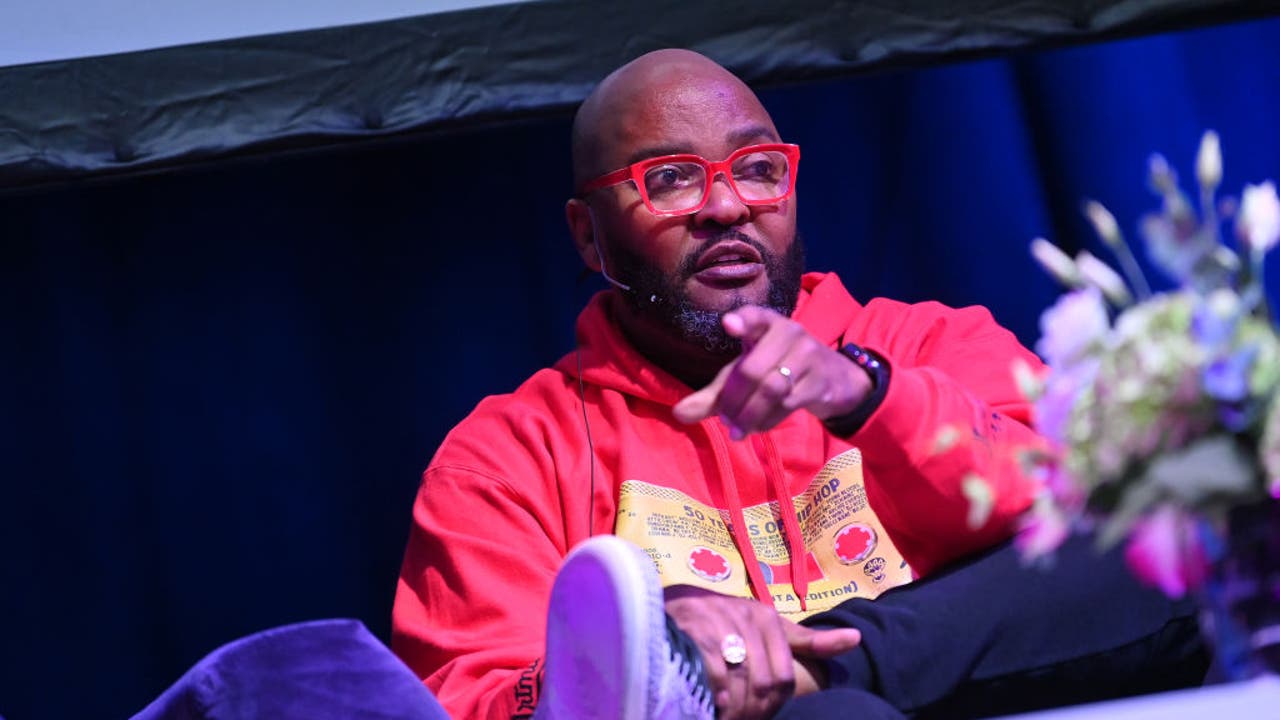



/cdn.vox-cdn.com/uploads/chorus_asset/file/25444148/IMG_4573.PNG)
